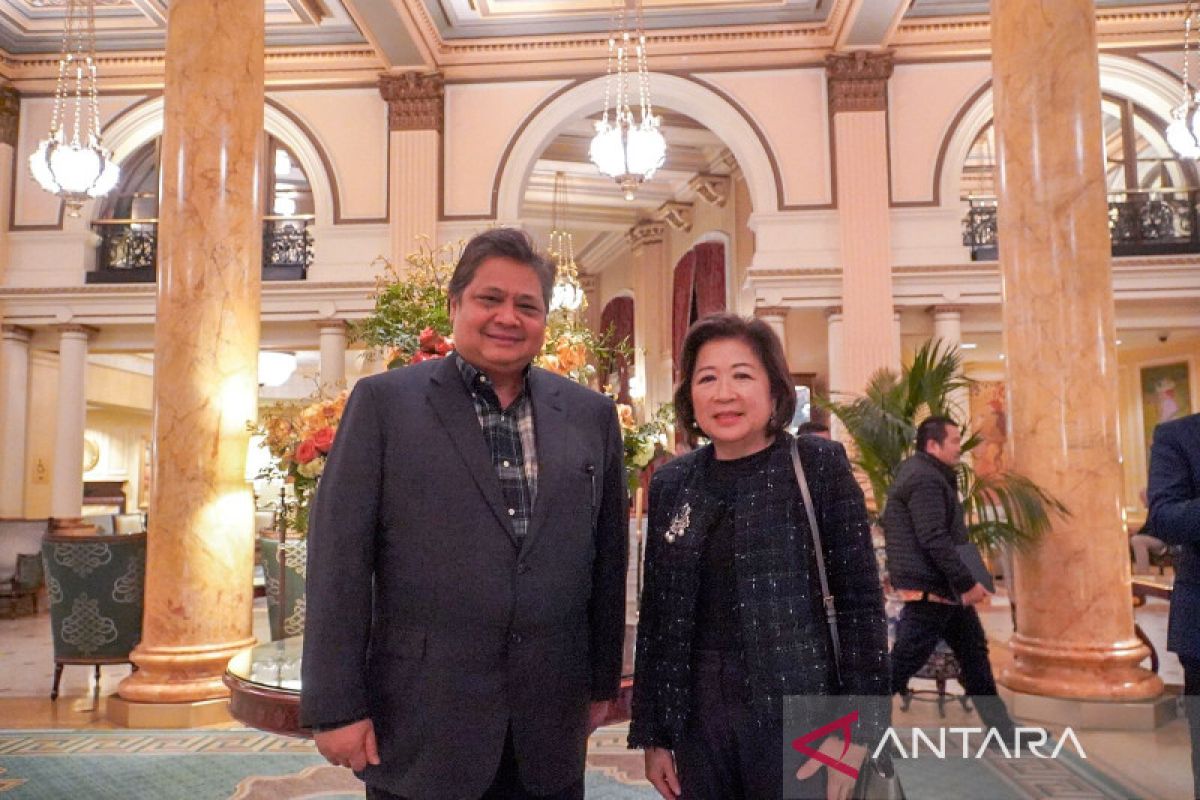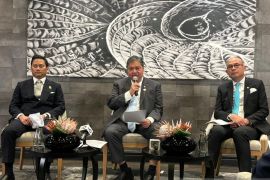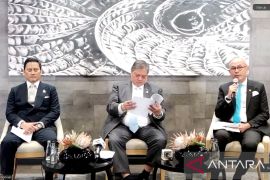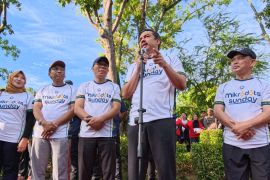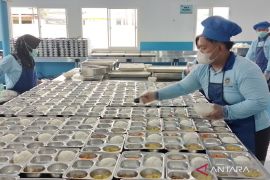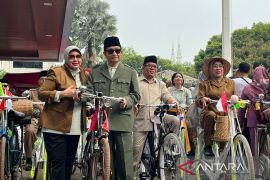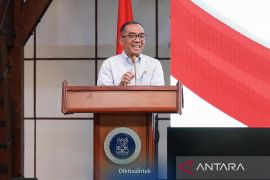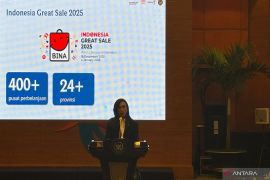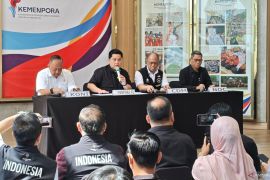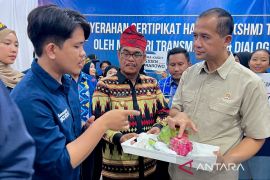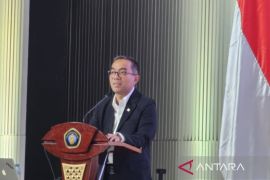He made the remarks in a discussion with the managing director of policy development and partnerships at the World Bank, Mari Elka Pangestu, during a working visit to Washington D.C., the United States, on Sunday (October 23, 2022).
"The availability of electrical energy is crucial. Thus, it is necessary to build alternative electrical energy such as floating solar power plants (PLTS) under the electricity network infrastructure cooperation in the Southeast Asia region," he said at the meeting, according to an official statement received on Tuesday.
During the meeting, Hartarto and Pangestu discussed various efforts made by the Indonesian government and the role of the World Bank in achieving the sustainable development goals (SDGs), especially the energy transition.
The bilateral meeting covered several topics, such as the role of Indonesia in ASEAN's energy connectivity, digital transformation, food security, and Partnership on Global Infrastructure and Investment (PGII).
Regarding the issue of digital transformation, the Indonesian government has developed a data center in the Nongsa Digital Park (NDP) Special Economic Zone (SEZ) as part of efforts to support the development of the digital economy in Indonesia and international connectivity, especially in Southeast Asia.
The NDP SEZ can be one of the potential data center development projects in Indonesia that can attract many investors.
Minister Hartarto said that the ASEAN Digital Master Plan 2025 needs the integration of digital investment and energy sources. The master plan is a five-year design to facilitate regional cooperation on the development of the digital sector in ASEAN.
Regarding digitalization in the finance sector, currently, the government is making adjustments, such as the harmonization of customs for e-commerce and digitization of the tax sector. Then, in terms of food security, the ASEAN Reserve Fund has been initiated to ensure the availability of rice in Southeast Asia.
In relation to climate change, a study by the World Bank found that global food production results in higher carbon emissions than energy production or deforestation. Therefore, the Indonesian government must take preventive measures through sustainable food production.
Related news: Electricity sector's coal consumption rose 60 percent in six years
Related news: Indonesia needs US$243 billion to provide green electricity: Minister
Translator: Agatha Olivia, Raka Adji
Editor: Azis Kurmala
Copyright © ANTARA 2022
